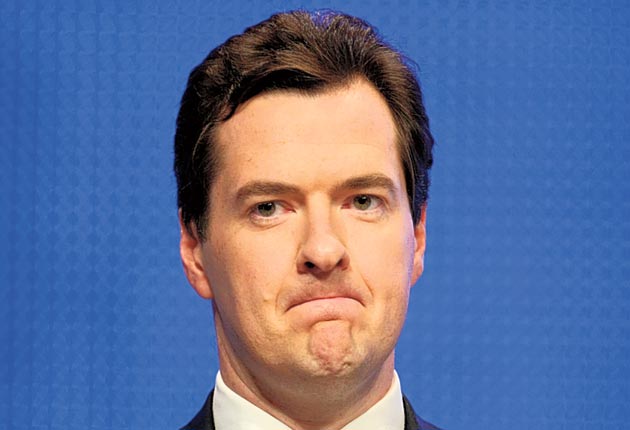Cabinet chums are all smiles now but wait until the big squeeze begins

The mood around the cabinet table when ministers gathered on Tuesday for the first time since their summer break was remarkably jolly. You wouldn't guess that two parties were represented.
Eric Pickles, the burly Tory Communities Secretary, used to describe Chris Huhne, the Liberal Democrat Climate Change Secretary, as "that bloke who always interrupts me when we appear on TV". Now they sit opposite each other in Cabinet and Mr Pickles says: "I agree with Chris." The feeling is mutual; ministers are pleasantly surprised about how often they agree with their coalition partners.
This Cabinet of chums reminds old Tory hands of the days of John Major. And yet the wiser heads know that the mood will change soon. In five weeks, ministers must agree spending cuts deeper than anything attempted in modern times. In Whitehall, there is frantic activity as the Treasury tells departments it is not satisfied with their opening offer and tells them to come back with bigger cuts.
The squeeze is bound to pit minister against minister. With most under orders to trim their budgets by 25 per cent, there are fears some will make indiscriminate cuts which put more financial pressure on another department and become a false economy. An all-powerful Star Chamber chaired by the Chancellor will consider "cross-cutting issues" affecting more than one department to try to prevent this.
Yet the biggest worry behind the cabinet smiles is that the Coalition Government has not prepared the public for the cuts. Opinion polling presented to ministers shows that voters recognise the £155bn deficit is a huge problem that must be addressed. Many people blame Labour for it. But the problem for the Coalition is that people think the cuts have happened because George Osborne announced them in his emergency Budget in June. "They think it's all over, but it has hardly begun," one cabinet minister said. No wonder the Budget was popular; it was virtually pain-free. The pain may start to dawn on 20 October when the Chancellor announces spending totals for each department, and will certainly be felt from the start of the financial year next April, by when ministers will have to decide how they will stick to their tight limits.
Ministers agree that they need to do some groundwork, and quickly. They also acknowledge the need to talk up a reform agenda that is more radical than they have been credited for – on health, education and welfare. Perhaps the biggest danger to the Coalition is being seen as a one-issue government, and that all the voters notice are nasty cuts. Trumping the cuts with reforms won't be easy, but ministers have resolved to try.
The initial responses from departments are seen as "variable" by the Treasury. Some have adopted a traditional salami-slicing approach that is unlikely to deliver 25 per cent cuts. Others have won plaudits by linking reforms and savings. The star pupil so far is Kenneth Clarke, the Justice Secretary. He is using the need for cuts to argue that "we can't go on as we are" with a failed sentencing policy which results in an ever-bulging prison population. He believed that anyway but the deficit gives him powerful ammunition, even though many Tory MPs will feel uneasy about allowing Labour to look harder than their party on law and order.
Nick Clegg began the mission to explain in a speech on Thursday, when he spoke about a "horizon shift" so that the Government takes decisions for the long term even though they can be difficult and painful in the short run.
David Cameron will outline a parallel "power shift" from the state to people and communities.
It's not an easy sell. The Deputy Prime Minister sent some decidedly mixed signals when answering questions about his speech. While preparing the nation for "difficult, painful or unpopular" cuts, he said the Coalition had to rise above the immediate bad headlines. He also tried to allay fears about the cuts, saying they would happen over four years, not overnight, and were not "dramatically different" to what Labour would have done. He sounded rather like a man trying to have it all ways. Clearly, further work is required here to make a rather fuzzy message much clearer.
The Health and International Development budgets are protected, while the Education and Defence departments have to draw up options for 10 and 20 per cent cuts, and the other ministries 25 and 40 per cent. So there is bound to be blood on the Cabinet Room carpet. For every minister who wins an argument with the Treasury, there will have to be a loser elsewhere. Mr Osborne's 20 October statement may well be portrayed as a game of cabinet winners and losers, as much of the detail may not emerge until next spring.
The carrot of a seat on the Star Chamber is being offered to ministers who settle their budgets with the Treasury. A clever wheeze: rewarding the good boys and girls and allowing them to impose cuts on their "colleagues", although some ministers are insisting they won't be rushed into bad decisions.
Ministers who can't reach a deal can appeal to the Star Chamber, the Prime Minister and the full Cabinet. The Coalition Committee which settles disputes between the Tories and Liberal Democrats is on standby. It may well be needed.
"We are in the calm before the storm," one cabinet minister said. "It is not going to last long." The Cabinet of chums may soon be at each other's throats.
Subscribe to Independent Premium to bookmark this article
Want to bookmark your favourite articles and stories to read or reference later? Start your Independent Premium subscription today.

Join our commenting forum
Join thought-provoking conversations, follow other Independent readers and see their replies